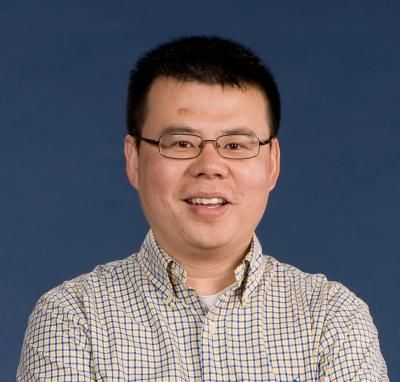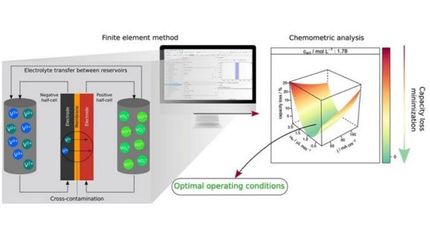WPI professor wins Catalyst Award for innovative design for grid storage batteries
An innovative design developed by a researcher at Worcester Polytechnic Institute (WPI) for flow batteries—rechargeable energy systems that can be used to store electric energy produced by wind and solar power installations—has received a 2012 Catalyst Award from the Massachusetts Clean Energy Center. The one-year, $40,000 award will support continued work on the new technology, which promises significantly higher energy and power density and longer cycle life than conventional flow batteries at a significantly lower cost.

Worcester Polytechnic Institute
In flow batteries, an electrolyte solution flows through an electrochemical cell that converts chemical energy to electricity. The flow can be reversed to store electric energy from the power grid as chemical energy. The innovation developed by Yan Wang, assistant professor of mechanical engineering at WPI and director of the university's Electrochemical Energy Laboratory, replaces the electrolyte solutions typically used in flow batteries with thick suspensions containing particles of nickel and zinc.
Using these suspensions, Wang has been able to greatly increase the concentration of electrically active material in the solutions, resulting in about a 10-fold increase in energy density (the amount of energy that can be stored in a given volume) and about 2.5 times the power density (he amount of power that can be generated with a given volume of material) when compared with conventional flow batteries.
In a further innovation, the metal particles in Wang's suspensions also serve as the battery's anode and cathode (positive and negative terminals). This simplifies the battery's design, significantly lowering its manufacturing costs and extending its useful life. "Often," Wang said, "up to 50 percent of a battery's volume is packaging and other components. In our design, the metal particles take the place of those components, so the battery can be more compact."
Because the suspensions are water-based, the battery is also safer to operate than batteries that use organic chemicals, including lithium-ion batteries, Wang added.
With the Catalyst Award, Wang, his research team, and his collaborator, Diran Apelian, Alcoa-Howmet Professor of Mechanical Engineering at WPI and director of the university's Metal Processing Institute, will experiment with new formulations that will more effectively keep the heavy metal particles in suspension. They will also conduct experiments to measure the battery's performance and will build a working prototype. They ultimately plan to found a start-up company to commercialize the new battery technology.
"Right now, the ability to store and retrieve energy is the Achilles heel in the world of renewable energy," said Apelian, who founded WPI's Center for Resource Recovery and Recycling, the nation's first materials recovery and recycling center. "By helping to address this challenge, Yan Wang's work will be critical to our nation's wellbeing. The work that he and our students are doing will make a huge impact. It is exciting for WPI to be part of this initiative, and to lead it."
Other news from the department science
Most read news
More news from our other portals
See the theme worlds for related content
Topic World Battery Technology
The topic world Battery Technology combines relevant knowledge in a unique way. Here you will find everything about suppliers and their products, webinars, white papers, catalogs and brochures.

Topic World Battery Technology
The topic world Battery Technology combines relevant knowledge in a unique way. Here you will find everything about suppliers and their products, webinars, white papers, catalogs and brochures.




























































